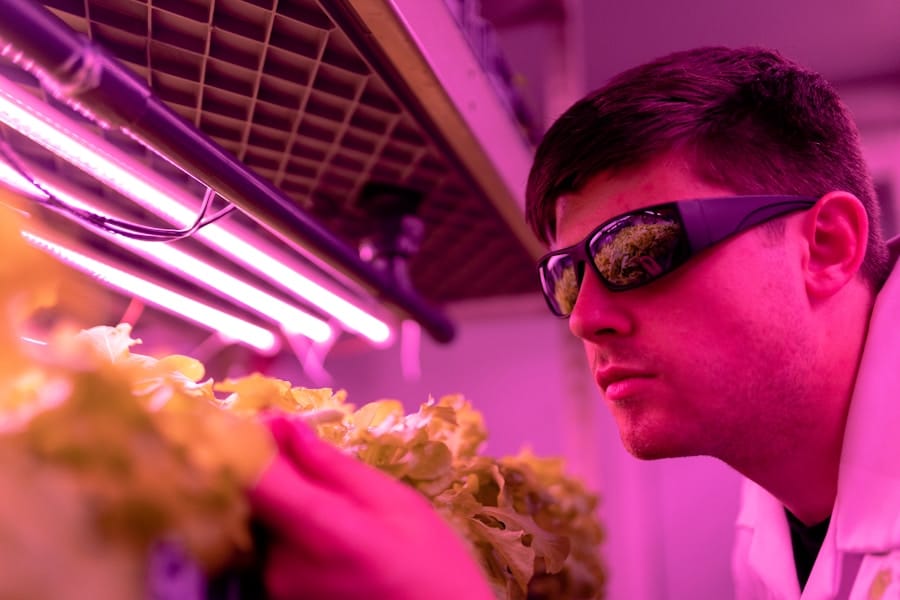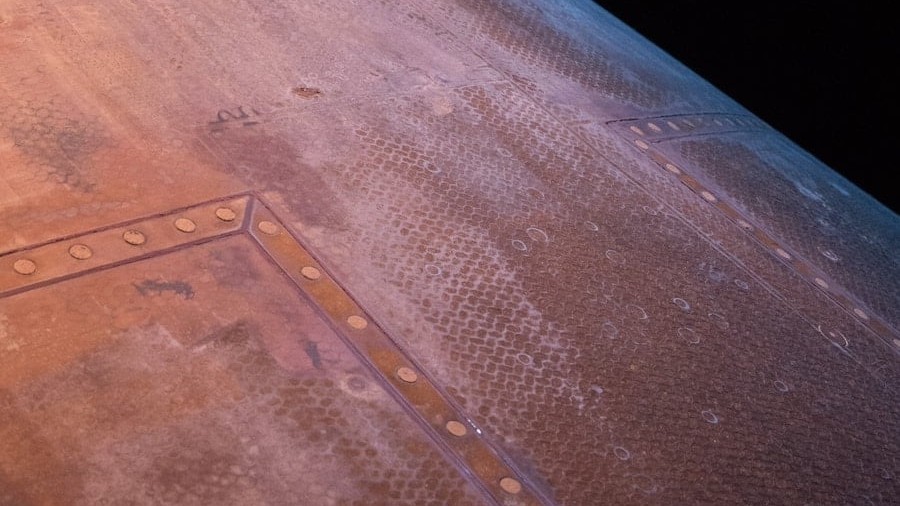The concept of space farming has transitioned from the realm of science fiction into a tangible area of research and development, particularly in the context of Mars colonization. As humanity sets its sights on becoming a multi-planetary species, the need for sustainable food production systems in extraterrestrial environments has become increasingly critical. Mars, with its harsh climate, thin atmosphere, and limited resources, presents unique challenges that necessitate innovative agricultural solutions.
The idea of cultivating crops in Martian soil or within controlled environments is not merely an ambitious dream; it is a fundamental requirement for long-term human habitation on the Red Planet. Space farming encompasses a variety of techniques and technologies aimed at growing food in environments that are vastly different from Earth. This includes hydroponics, aeroponics, and even the use of genetically modified organisms designed to thrive in low-gravity conditions.
As we explore the potential for colonizing Mars, the integration of advanced technologies, particularly artificial intelligence (AI), will play a pivotal role in overcoming the myriad challenges associated with farming in space. The intersection of agriculture and AI not only promises to enhance food production but also to ensure that future Martian settlers can sustain themselves in an environment that is otherwise inhospitable to life as we know it.
Key Takeaways
- Space farming is essential for Mars colonization and sustaining human life on other planets.
- Challenges of space farming include limited resources, harsh environments, and microgravity.
- AI plays a crucial role in space farming by assisting in plant growth, environmental control, and crop yield optimization.
- AI enables autonomous plant growth and maintenance in space, reducing the need for human intervention.
- The future of space farming with AI looks promising, with potential for sustainable food production on Mars and beyond.
The Challenges of Farming in Space
Farming in space, particularly on Mars, presents a host of challenges that are both environmental and logistical. One of the most significant hurdles is the Martian atmosphere, which is composed of over 95% carbon dioxide and lacks the oxygen necessary for traditional plant respiration. Additionally, the surface temperature on Mars can plummet to minus 80 degrees Fahrenheit at night, creating an inhospitable environment for most Earth-based crops.
The soil on Mars, known as regolith, is not only devoid of organic matter but also contains toxic perchlorates that could hinder plant growth. These factors necessitate innovative approaches to agriculture that can adapt to such extreme conditions. Another challenge lies in the limited availability of water on Mars.
While there is evidence of frozen water at the poles and beneath the surface, extracting and utilizing this resource for farming will require advanced technologies. Water recycling systems will need to be implemented to ensure that every drop is used efficiently. Furthermore, the lack of natural sunlight due to dust storms and the planet’s axial tilt complicates the cultivation process.
These environmental challenges underscore the need for robust agricultural systems that can operate autonomously and efficiently, making AI an essential component in developing solutions for space farming.
The Role of AI in Space Farming

Artificial intelligence is poised to revolutionize space farming by providing solutions that can adapt to the unique challenges presented by extraterrestrial environments. AI systems can analyze vast amounts of data from various sources, including environmental sensors, satellite imagery, and historical agricultural data, to make informed decisions about crop management. This capability is particularly crucial in a setting like Mars, where human oversight may be limited due to distance and communication delays.
By leveraging AI, researchers can develop predictive models that optimize growth conditions and resource usage, ultimately enhancing crop yields. Moreover, AI can facilitate automation in space farming operations. Robots equipped with AI algorithms can perform tasks such as planting seeds, monitoring plant health, and harvesting crops with minimal human intervention.
This automation is vital for maintaining efficiency in an environment where human labor may be scarce or impractical. For instance, autonomous drones could be deployed to monitor crop growth from above, using machine learning algorithms to identify areas that require additional nutrients or water. This level of precision not only conserves resources but also maximizes productivity, making it a cornerstone of future space farming initiatives.
AI-Enabled Plant Growth and Maintenance
The integration of AI into plant growth and maintenance processes can significantly enhance the viability of farming on Mars.
By continuously monitoring variables such as temperature, humidity, light levels, and soil composition, AI systems can provide tailored recommendations for optimizing growth conditions.
For example, if a particular crop is found to thrive under specific light wavelengths or temperature ranges, AI can adjust artificial lighting or heating systems accordingly to create an ideal microclimate. Additionally, AI can assist in identifying plant diseases or nutrient deficiencies before they become critical issues. By employing computer vision techniques, AI systems can analyze images of plants to detect early signs of stress or disease that may not be visible to the naked eye.
This proactive approach allows for timely interventions, such as adjusting nutrient delivery systems or applying targeted treatments, thereby reducing crop loss and ensuring a steady food supply for Martian settlers. The ability to maintain healthy crops through AI-enabled monitoring and maintenance will be essential for establishing a sustainable agricultural ecosystem on Mars.
AI-Driven Environmental Control and Monitoring
Effective environmental control is paramount for successful farming in space. On Mars, where external conditions are unpredictable and often extreme, maintaining a stable internal environment for crops is crucial. AI-driven environmental control systems can regulate factors such as temperature, humidity, and atmospheric composition within greenhouses or controlled habitats.
By utilizing data from sensors placed throughout the growing environment, these systems can make real-time adjustments to ensure optimal conditions for plant growth.
Similarly, if humidity levels rise too high, the system can initiate ventilation protocols to prevent mold growth or other issues associated with excessive moisture.
This level of control not only enhances crop resilience but also minimizes resource waste by ensuring that energy and water are used efficiently.
AI-Assisted Crop Yield Optimization

Understanding the Factors that Influence Plant Growth
AI-assisted crop yield optimization involves analyzing various factors that influence plant growth and productivity. By employing advanced algorithms that consider historical data, environmental conditions, and genetic information about different crop varieties, AI can identify optimal planting strategies and resource allocation methods.
Predicting Crop Success on Mars
For example, machine learning models can predict which crop varieties are best suited for Martian conditions based on their genetic traits and previous performance data from Earth-based experiments. This predictive capability allows researchers to select crops that are more likely to thrive in Martian soil while minimizing risks associated with crop failure.
Optimizing Planting Schedules for Martian Conditions
Additionally, AI can optimize planting schedules by analyzing seasonal variations in light availability and temperature fluctuations on Mars, ensuring that crops are planted at the most advantageous times for growth.
The Future of Space Farming with AI
The future of space farming is intrinsically linked to advancements in artificial intelligence technology. As research progresses and our understanding of Martian agriculture deepens, we can expect to see increasingly sophisticated AI systems capable of managing complex agricultural ecosystems autonomously. These systems will not only enhance food production but also contribute to broader goals related to sustainability and resource management on Mars.
In addition to improving crop yields and resource efficiency, future AI applications may include genetic engineering techniques that allow for the development of crops specifically tailored for Martian conditions. By integrating AI with biotechnology, researchers could create plants that require less water or are more resistant to radiation—two critical factors for successful farming on Mars. Furthermore, as we explore other celestial bodies such as the Moon or asteroids for potential colonization, the lessons learned from Martian agriculture will inform our approaches to farming in those environments as well.
AI’s Impact on Mars Colonization and Beyond
The integration of artificial intelligence into space farming represents a transformative shift in our approach to agriculture beyond Earth. As we prepare for the challenges of colonizing Mars and potentially other planets, AI will serve as a vital tool in ensuring food security for future settlers. By enabling precise monitoring and control of environmental conditions, optimizing crop yields through data-driven insights, and automating labor-intensive tasks, AI has the potential to revolutionize how we think about food production in space.
As humanity embarks on this ambitious journey toward becoming a multi-planetary species, the role of AI in agriculture will be indispensable. The innovations developed for Martian farming may eventually find applications on Earth as well—addressing issues such as climate change and food scarcity by providing insights into sustainable agricultural practices. Ultimately, the marriage of AI technology with space farming not only holds promise for successful colonization efforts but also paves the way for a new era of agricultural innovation that transcends planetary boundaries.
In a related article discussing the importance of technology in various fields, such as gaming and affiliate marketing, there is a fascinating piece on how to choose the best tablet for students. This article explores the different features and specifications that students should consider when selecting a tablet for their academic needs. With advancements in technology playing a crucial role in shaping our future, it is essential to understand how these tools can be utilized in various industries, including space farming for future Mars colonization. To read more about the best tablets for students, check out this article.
FAQs
What is space farming?
Space farming refers to the practice of growing crops and plants in space or on other celestial bodies such as Mars. It is a crucial aspect of future space colonization efforts as it will provide astronauts with a sustainable source of food during long-duration missions.
What is the role of AI in enabling space farming for future Mars colonization?
AI plays a crucial role in enabling space farming for future Mars colonization by helping to automate and optimize various aspects of the farming process. This includes tasks such as monitoring plant health, adjusting environmental conditions, and predicting crop yields in the challenging and resource-constrained environment of space.
How does AI help in monitoring plant health in space farming?
AI helps in monitoring plant health in space farming by analyzing data from sensors and cameras to detect signs of stress or disease in plants. This allows for early intervention and ensures the overall health and productivity of the crops in the space farming environment.
How does AI optimize environmental conditions for space farming?
AI optimizes environmental conditions for space farming by continuously analyzing data on factors such as temperature, humidity, and light levels, and making real-time adjustments to create the ideal growing conditions for the crops. This level of precision is crucial for the success of space farming in the challenging environment of Mars.
How does AI contribute to predicting crop yields in space farming?
AI contributes to predicting crop yields in space farming by analyzing historical data, environmental conditions, and plant health to generate accurate forecasts of future crop yields. This information is essential for planning and ensuring a sustainable food supply for future Mars colonization missions.

